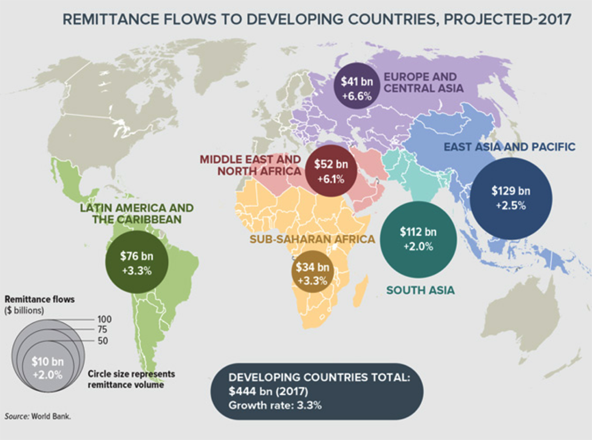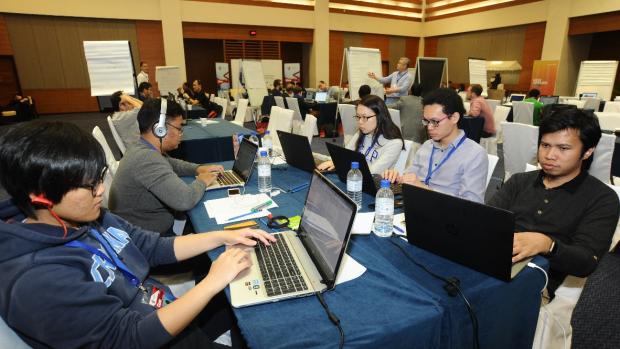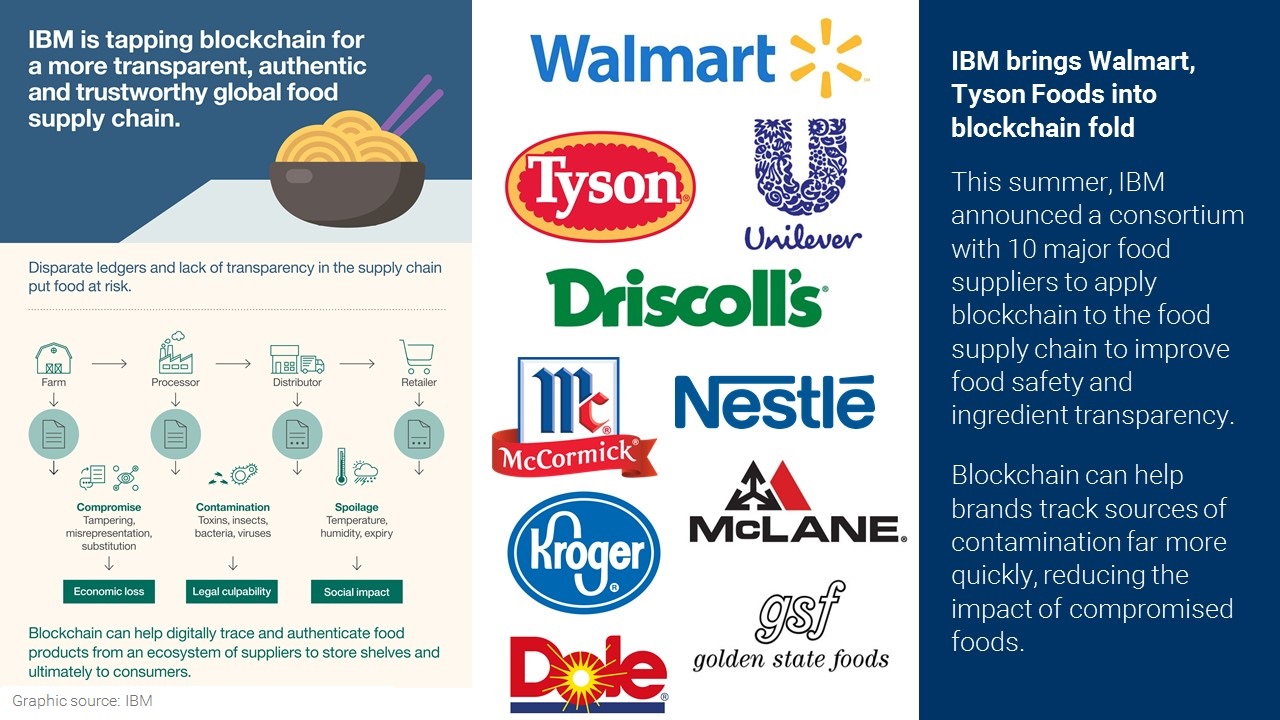How decentralized technologies are transforming philanthropy and NGO work.
f you have any interest in recent events, you can’t help but notice bitcoin’s meteoric rise in value. Just over a year ago, on January 1, 2017, one bitcoin was worth about $1,000; by the end of December 2017, its value had soared to more than $14,000. The digital currency has also suffered from wild swings, however, losing a third of its value in July 2017, then reaching a high of nearly $20,000 in late 2017, and then falling briefly below $10,000 on January 17, 2018. But the technology at the heart of bitcoin and other digital currencies (also called cryptocurrencies) may, in fact, have the potential to drive profound social impact and transform the social sector along the way.
These currencies are built on a breakthrough technology called “blockchain.” A blockchain is essentially a digital ledger of online transactions linked and secured by cryptography, and stored on a peer-to-peer computer network. Updates occur in real-time—in blocks (or groups) of transactions—without interference from or control by a central authority. A blockchain doesn’t allow users to change completed transactions, and all users can see the transaction history. This technology is exciting, because the transparency and security of data stored in a blockchain facilitates trust and efficiency between users in an unprecedented way.
Though many people associate blockchain technology solely with cryptocurrency transactions, it can be used to record any type of exchange—for example, property sales, audit data, voter identification, or supply chain origin. Blockchain can also enable automated governance or regulatory compliance—for example, it could allow people with solar panels to automatically sell electricity to their neighbors. In terms of its development, blockchain is in its early days. Only 0.5 percent of the world’s population is using blockchain, while more than 50 percent of the population has access to the Internet. And much like the Internet, we expect to see an explosion of users and usages over time.
Using Blockchain in the Social Sector
The application of blockchain and digital currencies in the social sector is just getting started, but at least five prominent use cases have already emerged:
1. Philanthropy and international aid
To expand fundraising opportunities, a number of charities and foundations are accepting bitcoin and other cryptocurrency donations from donors directly. They exchange cryptocurrency donations through an online wallet for dollars or other fiat currencies at the going exchange rate. In addition, a handful of organizations have created customized “charity coins” to raise money for specific nonprofits or social impact projects. Donors can buy Clean Water Coins, for example, to help fund the work of the NGO Charity:Water. Other examples include Root tokens, issued to fund anti-poverty work projects, and impak coin, created as an impact investing mechanism. To date, such specialized charity coin offerings have raised anywhere from a couple of thousand to more than a million dollars each.
Digital currencies and blockchain have also spurred a movement for greater transparency in aid. For example, the BitGive Foundation has launched an initiative called GiveTrack, which allows bitcoin donors and the public “to trace nonprofit transactions on a public platform in real time to see how funds are spent, ensure they reach their final destination, and track the results generated from contributions.” The United Nations World Food Program (WFP) conducted another experiment in aid transparency, providing Syrian refugees based in Jordan with digital currency vouchers to trade at selected markets. WFP used the platform to successfully transfer $1.4 million to more than 10,000 people, eliminating the dangers of carrying cash, and gave the organization a more effective and less expensive method for distributing and tracking payments.
These new applications are even supporting private sector charity donations and tracking. China’s e-commerce conglomerate, Alibaba, has developed a unique blockchain donation system called Ant Love. Established last year, Ant Love can record the donations from any of Alibaba’s 450 million users, allowing them to donate to various charitable groups and NGOs. The system also lets donors track their transaction histories, and better understand where and how the organizations they fund are using their money.
Source/More: Digital Currencies and Blockchain in the Social Sector
















